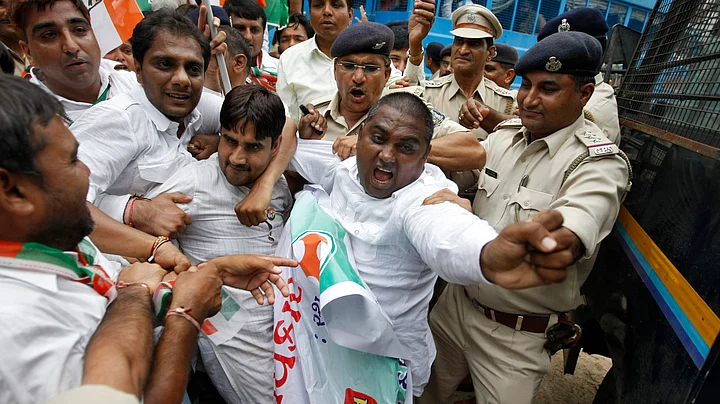A controversial anti-terror bill was passed in the Gujarat state assembly on Tuesday whose provisions, critics say, give way too much power to the police and will lead to the harassment of the public.
The bill called the ‘Control of Terrorism and Organized Crime Bill’ is so contentious that past versions of the bill, have been rejected by Presidents Abdul Kalam and Pratibha Patil.
The controversial provisions of the bill include allowing the police to intercept phone calls and wire communications and use the conversations as evidence in a court of law.
Also, as per the proposed law a confession made before a police officer “shall be admissible” as evidence “in the trial of the accused.”
Critics say this will give immense power to the police to get confessions through torture, pressure, coercion or duress.
Getting bail also becomes more difficult, with bail being granted to an accused only if the prosecution lawyer does not object to it.
The bill also extends the limit of detention without being charged, to 30 days from the present 15.
But if the prosecution lawyer recommends that more time is needed to file a charge sheet, the police can extend the custody to 180 days, twice what it is now.
Another very controversial provision in the law that has human right activists screaming, is that the onus of proving innocence is on the accused. Activists say this will this will lead to further harassment and exploitation of people by police.
“Intention isn’t correct, they have done it for political gain”, said Congress leader Shaktisinh Gohil. The opposition staged a walk out when the bill was tabled in the assembly.
“Despite reservations from past Presidents, no changes have been made. The government has just changed the nomenclature and the content (of the bill) remains same,” said the Congress leader according to NDTV.
The bill needs the signature of the President of India to become law and past Presidents had refused to sign the bill, objecting against the very provisions that have been yet again been included in this version.
Will it be rejected this time too?
(At The Quint, we question everything. Play an active role in shaping our journalism by becoming a member today.)
